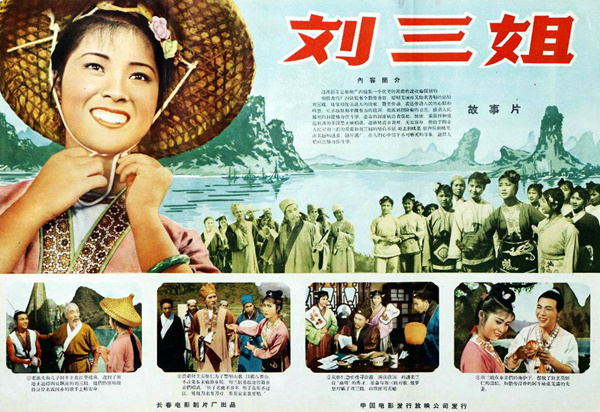

Film critics say the ballads sung by Huang in the film emphasize rhythm, method and the unity of voice and emotion, showing the unique regional style of music and carrying national aesthetic connotations.
The melodious songs of Liu-and, more important, her unyielding spirit in her fight for freedom-touched audiences deeply. Huang attributes the success of the film to the charm and spirit of the central character, which spoke to people's needs at the time of the movie's release.
Like many other artists, Huang was persecuted during the "cultural revolution" (1966-76). The film was banned for spreading the "evil legacy" of feudal society. Huang's husband, He Youcai, who now serves as her assistant, said "it was the hospitality and support of audiences that sustained her through the unimaginable hardships of that tough time."
"She has suffered too much. That's why I am doing all I can to support her career and not let her fans down," he said.
After the difficulties ended, Huang starred in other films, most of which were successful. But people still called her Liu Sanjie.
In the 1980s, Huang was often invited to perform as Liu Sanjie on stage in Southeast Asia, and the passion of audiences fueled her desire to carry forward the character's songs and spirit.
In 1991, Huang was appointed deputy chief of the cultural bureau of Guilin. In her second year she set up a troupe named for Liu Sanjie, and performances rose in popularity in the city and beyond. The Liu Sanjie ballads were recognized as a national intangible cultural heritage in 2006. It was among the earliest to be designated.
The ballads include songs about life, work and love, as well as others involving ritual, riddles and stories of ancient creation. They bear many hallmarks of poetry and reflect many distinctive national characteristics, speaking not only to the value of cultural history but also to the ethnology, anthropology, sociology and aesthetics of the local Zhuang, Yao, Miao and Dong ethnic cultures in Guangxi.
Huang quit her job with the Guilin cultural bureau in 1999, and founded the Liu Sanjie Scenery Park in Guilin to spread the old ballads and help preserve local ethnic culture. She teaches dozens of disciples, including her daughter and granddaughters, in the hope that they will one day take up the role of Liu Sanjie on stage.
Huang said that mere preservation of the ballads as a cultural heritage is not enough. The Liu Sanjie songs should be developed further and adapted to fit the lives of young people today, she said, as anything presented on stage that is divorced from reality will not be sustainable.
Li Ziyu in Guilin contributed to this story.